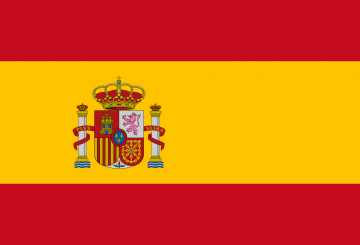
With a population of more than 260 million, Indonesia is the world’s third most populous democracy and the world’s largest Muslim-majority country. Most people live on the island of Java, widely considered one of the world’s most densely populated regions. The capital, Jakarta, has a population of more than 10 million. Other large cities include Surabaya, Bandung, Medan, Semarang, and Makassar. In addition, the island of Bali, known as ‘the Land of the Gods,’ is a very popular tourist destination.
Indonesia is a very ethnically, culturally and religiously diverse country. It has more than 300 ethnic groups, and although the majority of Indonesians are Muslim, numerous other religious communities are present, including Protestants, Roman Catholics, and Hindus.
Islam practiced in Indonesia is a moderate version, and the country is relatively liberal and tolerant, although it still very much values its traditions. As a newcomer, it is essential to become familiar with the culture and customs of the specific group in your region.
Newcomers should familiarize themselves with not only the religious culture and customs of Indonesia but the country’s food, recreation, etiquette, and general attitudes. And, a little knowledge of the language doesn’t hurt either.
Cuisine
Indonesians love food, and it is a common topic of conversation. They often eat at restaurants or at small food stalls known as warung, or at mobile stalls (kaki lima) found near bus stations and at night markets.
Indonesian cuisine is characterized by frequent use of rice (nasi) — a staple food eaten daily — noodles, coconut milk, and spices (an essential component of their cuisine, used to flavor fruit, vegetables, and meat), and usually seafood, chicken, goat, and beef. Chilies are omnipresent, as is a fermented shrimp paste known as terasi or belacan. Dishes are often fried, and meals are usually served with sambal, a hot sauce or paste made with chili peppers, shrimp paste, ginger, shallots, palm sugar, lime juice, and vinegar. There are many varieties of sambal.
Popular dishes include nasi goreng (fried rice, vegetables, meat, fried egg), nasi campur (boiled rice served with a variety of side dishes), gado-gado (steamed vegetables in peanut sauce) and sate (meat or fish kebabs served with peanut sauce). Indonesian bread, roti, is sweet and often served at breakfast.
Sumatran Padang restaurants are popular across Indonesia. They offer a broad variety of small and inexpensive dishes, many based on rice, and are served in a unique style known as hidangan, where a number of platters are brought to your table. You are charged only for what you have eaten, and the rest is served to other guests. Padang restaurants can be recognized by bowls of food stacked up in the window of the restaurant.
Although a predominantly Muslim country, alcohol is available across Indonesia. Generally speaking, however, most Indonesians are not big drinkers.
Vegetarians should not have a difficult time in Indonesia – tofu and tempeh (fermented soy) are abundant, and many restaurants have fried mixed vegetables (cap cay). The larger cities and tourist areas offer a wider selection.
Recreation
Indonesia, and Bali in particular, is a major tourist destination and offers a vast assortment of cultural events and sporting and leisure activities. Bali is known for its culture, beaches, spas, and resorts. Besides Bali, other major attractions include the capital city Jakarta, the Komodo National Park, Raja Ampat, Tanjung Puting National Park, the Gili Islands, and Banda Islands.
The country’s numerous islands, rainforests and beaches allow for outdoor activities such as hiking, swimming, surfing and diving.
Indonesia also has numerous religious festivals throughout the year, representing all faiths.
Language
More than 700 languages and dialects are spoken across Indonesia. The official language is Bahasa Indonesian, an Austronesian language and a form of Malay, and is generally simply referred to as Indonesian. It is the native language of about 30 million Indonesians and is spoken as a second language by another 140 million residents. Although Indonesian is the official language and the lingua franca, there are actually more native speakers of Javanese (about 75 million). Outside of business and tourism contexts, most locals do not speak much English, so it’s a good idea to learn Indonesian if you’re staying for the long term. Locals will be pleased to hear you try to speak their language, even if it is only a few words.
Vocabulary
Below are some basic phrases in Indonesian.
| English | Indonesian |
| Hello (general greeting) | Hi
Salam sejahtera (formal) |
| Hello (on phone) | Halo |
| How are you? | Apa kabar? |
| Replies to ‘How are you?’ | Baik (Fine)
Sehat (Healthy) Bagaimana denganmu? (How about you? ─ informal) |
| Good morning | Selamat pagi (early morning)
Selamat siang (late morning) |
| Good afternoon (later afternoon/evening) | Selamat sore |
| Good evening (late evening/night) | Selamat malam |
| Good night (said before sleep) | Selamat tidur |
| Goodbye | Selamat tinggal (when leaving)
Selamat jalan (when staying) |
| What’s your name? | Siapa nama anda?
Siapa namamu? (informal) |
| My name is … | Nama saya …
Saya bernama … |
| Pleased to meet you | Senang bertemu dengan Anda |
| Bon appétit/Have a nice meal | Selamat makan |
| I don’t understand | Saya tidak mengerti |
| Please speak more slowly | Tolong bicara pelan sedikit |
| Do you speak English? | Anda bisa bicara bahasa inggris? |
| Please | Tolong or Mohon |
| Sorry | Maafkan saya or Maaf |
| Excuse me | Maaf or permisi (to get past someone) |
| Thank you | Terima kasih |
| Help! | Tolong! |
Acting Like a Local: Tips in Etiquette and Attitudes
- Outside of major tourist resorts, dress conservatively.
- Do be sociable and don’t be afraid to talk to strangers.
- Greet people you pass on the street and at the workplace.
- If invited to someone’s home, bring a small gift, such as an item from your country.
- Remove your shoes when entering a home.
- A man should not shake hands with a Muslim woman unless she offers her hand first.
- Do not use your left hand to eat, pick up objects or touch people; it is considered unclean.
- Do not show the soles of your feet to anyone as this is considered rude.
- Do not point at anything using your toes; this is perceived as arrogant.
- Point at things using the right thumb, not the index finger.
- Do not touch anyone on their head; this is considered rude and arrogant.
- Direct, continuous eye contact with a superior or older person is considered rude and arrogant.
- If meeting an older person or authority figure, bend at the waist slightly when greeting them.
- Burping during a meal is not considered rude.
- Indonesians love social media, so be prepared for lots of selfies.
Follow @goinglobal
Tweet to @goinglobal
Information on employment outlook for more countries can be found by logging into your GoinGlobal account!
Don’t have an account? Sign up for a free online demo to learn how you can utilize GoinGlobal’s employment resources.



